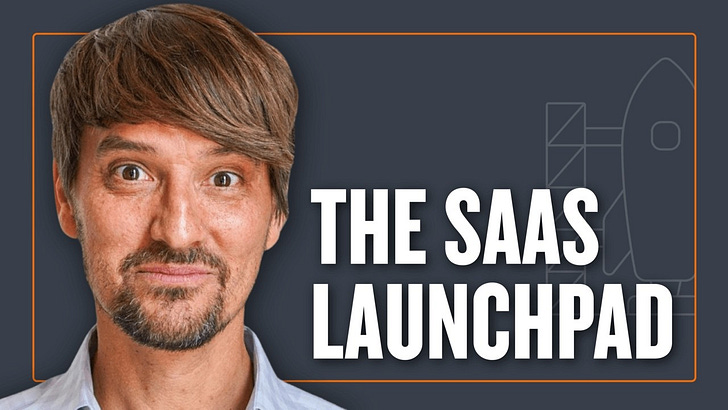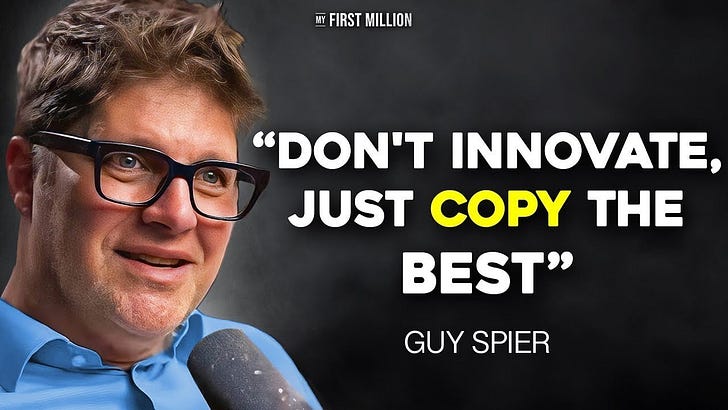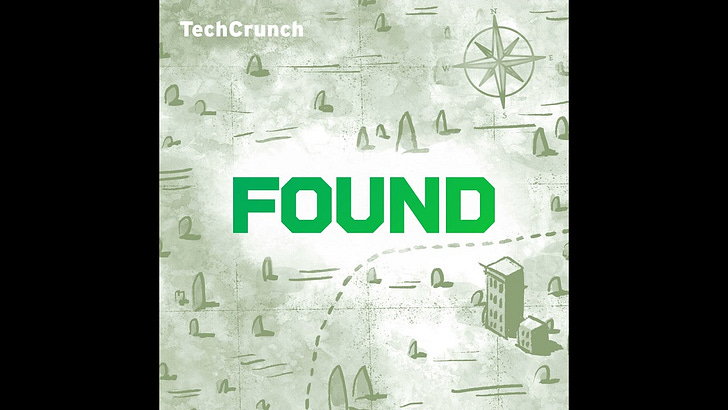"## Business Ideas:
1. Boom Supersonic
2. Cruise Automation
3. Astranis
4. AstroForge
5. Relativity Space
6. Heart Aerospace
7. Remora
8. Seabound
9. Solugen
10. K Scale Labs
11. Astro Mechanica
## Business Learnings:
1. Hard Tech Companies and YC
2. Hard Tech: Risk vs. Reward
3. Importance of Vision and Storytelling
4. The Two Paths to Building a Hard Tech Company"
[0.00] Y Combinator_Inside The Hard Tech Startups Turning Sci-Fi Into Reality.txt
Y Combinator
Inside The Hard Tech Startups Turning Sci-Fi Into Reality
"-BUSINESS LEARNING- 1: **Hard Tech Companies and YC**
[YouTube Link:
Hard tech companies, despite needing significant capital, can benefit greatly from Y Combinator (YC). While unable to build a full product like a rocket during the three-month program, they can focus on demonstrating commercial traction through substantial letters of intent (LOIs) from credible customers. Founders often mistakenly think they need massive funding upfront, but YC emphasizes a lean approach, encouraging them to identify a smaller, achievable milestone within the three-month timeframe and limited budget. This shift in mindset not only helps secure funding but also instills a habit of operating efficiently, pushing boundaries with limited resources, which can be beneficial long-term.
-BUSINESS IDEA- 1: **Boom Supersonic**
[YouTube Link:
Boom Supersonic, a YC-funded company, aims to revive supersonic passenger travel with a jet replacing the Concorde. During their YC batch, they focused on de-risking both the technology and commercial viability. Recognizing the need for airline buy-in, founder Blake Scholl secured a $100 million LOI from Virgin Airlines just before Demo Day, a pivotal step in attracting further investment. Remarkably, eight years later, Boom has built a supersonic jet that recently completed its first successful test flight, proving the feasibility of their ambitious vision.
-BUSINESS IDEA- 2: **Cruise Automation**
[YouTube Link:
Cruise Automation, founded by ex-Twitch engineer Kyle Vogt, focuses on self-driving cars. While a seemingly far-fetched idea at the time, Kyle secured YC funding based on his prior experience with the MIT autonomous car team. During YC, he focused on building a highway driver-assistance system (ADAS) as a retrofit for Audi S4s. This achievable goal allowed him to gain commercial validation through a Kickstarter campaign, raising seed funding. Within a few years, Cruise was acquired for nearly $1 billion, highlighting the company's rapid progress and the potential of seemingly ambitious hard tech ventures.
-BUSINESS IDEA- 3: **Astranis**
[YouTube Link:
Astranis, another YC success story, builds cheaper and smaller telecommunication satellites, drawing parallels to the commodity server revolution in computing. During their YC batch, they built a fully functional satellite, a feat typically taking years, and later launched it into space using a SpaceX rocket. Their commercially viable model focuses on generating revenue through providing telecommunication services, showcasing how hard tech companies can achieve profitability early on by tapping into existing markets with innovative solutions.
-BUSINESS IDEA- 4: **AstroForge**
[YouTube Link:
AstroForge aims to mine asteroids for precious metals, a truly audacious ambition. Their plan involves flying a satellite to an asteroid, refining the ore in space, and returning the refined metals to Earth. While the risks are significant, the potential reward of owning an asteroid rich in valuable resources makes the venture appealing from an expected value standpoint. Their initial focus is on proving the technology for asteroid retrieval, demonstrating a clear path to their long-term vision, which could potentially revolutionize resource acquisition and establish AstroForge as a company of immense value.
-BUSINESS IDEA- 5: **Relativity Space**
[YouTube Link:
Relativity Space utilizes 3D printing to create rockets, a novel approach in the aerospace industry. Founded by young engineers, they aimed to prove the feasibility of their concept during their YC batch by building a scaled model of a 3D-printed rocket engine. They successfully showcased a functional prototype at Demo Day, securing funding and demonstrating their technical prowess. Years later, they achieved the remarkable feat of launching a full-scale, mostly 3D-printed rocket, proving the viability of their innovative manufacturing process.
-BUSINESS IDEA- 6: **Heart Aerospace**
[YouTube Link:
Heart Aerospace focuses on building fully electric planes, targeting the financially challenging regional flight market. Recognizing the limitations of current battery technology, they focused on shorter routes, securing LOIs from airlines eager to reduce losses on these subsidized routes. Driven by Sweden's ambitious goal of electrifying all flights by 2040, Heart Aerospace has built a 19-seater prototype with a test pilot, highlighting their progress and the increasing interest from both airlines and governments in sustainable aviation solutions.
-BUSINESS IDEA- 7: **Remora**
[YouTube Link:
Remora tackles heavy-duty vehicle emissions, specifically targeting semi-trucks, which contribute significantly to carbon emissions. Their innovative approach involves retrofitting trucks with mobile carbon capture technology, sequestering CO2 as the vehicles operate. Based on pioneering research by co-founder Christina Reynolds, Remora has developed a system capable of capturing 80% of truck exhaust, demonstrating the viability of their solution in addressing a critical environmental challenge.
-BUSINESS IDEA- 8: **Seabound**
[YouTube Link:
Seabound aims to decarbonize the shipping industry by retrofitting cargo ships with technology to capture CO2 emissions. Leveraging calcium looping technology and driven by new regulations pushing the industry toward carbon neutrality, they secured LOIs from ship owners during their YC batch and have since conducted a successful pilot on a cargo ship. Their innovative solution addresses a significant source of emissions, highlighting the potential for ambitious startups to tackle industry-specific environmental challenges.
-BUSINESS IDEA- 9: **Solugen**
[YouTube Link:
Solugen produces industrial chemicals in a sustainable and scalable manner. Starting with a beaker-sized prototype, they rapidly scaled their production during their YC batch, generating revenue by selling small quantities of hydrogen peroxide. Their focus on profitability from day one and their innovative approach to chemical production have enabled them to build a successful, capital-efficient business, culminating in a large-scale chemical plant in Houston, Texas.
-BUSINESS IDEA- 10: **K Scale Labs**
[YouTube Link:
K Scale Labs envisions a future with affordable humanoid robots for everyday use. Rather than pursuing massive upfront funding, founder Ben, drawing from his experience with Tesla's Optimus robot, focuses on developing a foundational perception model for robots. To achieve this, K Scale plans to build a limited number of robots while open-sourcing the hardware design, fostering a community of engineers who can contribute data and improve the model. This clever approach allows for distributed development and cost sharing, reminiscent of the early days of personal computing.
-BUSINESS IDEA- 11: **Astro Mechanica**
[YouTube Link:
Astro Mechanica has developed a groundbreaking electric jet engine efficient at all speeds, unlike traditional engines optimized for specific speed ranges. While their long-term goal is to revolutionize the aerospace industry as the "next Boeing," their initial focus is on the more achievable goal of launching payloads into orbit. By securing LOIs for this specific use case, they can generate revenue and fund further development, mirroring Tesla's strategy of starting with a niche product and expanding into broader markets.
-BUSINESS LEARNING- 2: **Hard Tech: Risk vs. Reward**
[YouTube Link:
Hard tech startups often face high technical risk but benefit from lower market risk. If they can successfully create their product, the market demand is often clear, as exemplified by asteroid mining or carbon capture technologies. This differs from software startups where technical feasibility is usually less of a concern but market acceptance is uncertain. This risk-reward profile, combined with decreasing prototyping costs and platforms built by pioneers like SpaceX, creates an enticing landscape for ambitious engineers to solve world-changing problems.
-BUSINESS LEARNING- 3: **Importance of Vision and Storytelling**
[YouTube Link:
Strong vision and compelling storytelling are crucial for hard tech founders to attract investors, talent, and customers. Blake Scholl's journey with Boom Supersonic highlights how even without a background in aerospace, a clear vision and passionate storytelling can rally support and enable ambitious projects. The excitement generated by truly innovative hard tech ventures often makes it easier to assemble teams and secure funding compared to less impactful, though easier-to-build, software companies.
-BUSINESS LEARNING- 4: **The Two Paths to Building a Hard Tech Company**
[YouTube Link:
There are two paths to building successful hard tech companies: the Elon Musk approach, characterized by exceptional fundraising skills and charisma, and a more disciplined approach focused on lean development and rapid commercialization. For founders who are not natural fundraisers, the latter approach involves proving viability through achievable milestones and securing early revenue to fuel further growth. By thinking like software companies and building strong teams, hard tech founders can navigate the challenges of building world-changing companies even without access to massive capital pools.
"











